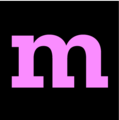Making the Connection: Opening Access to Humanities Resources via Social Hubs
By Rob Schaefer | A spotlight on a Sprint for Internet Health project
Working “open” means so much more than releasing computer code or scientific data. Recent Mozilla Open Leaders graduates Jennie and Lillian are paving the way to bringing open practices and resources to the humanities — including those working in public libraries, teachers, liberal arts hobbyists, Wikipedians, and everyday citizens.
I interviewed Jennie Rose Halperin (@little_wow) and Lillian Hogendoorn (@lilyrglg) to learn more about Socializing Open Access in the Humanities and how you can contribute to the work.
What is Socializing Open Access in the Humanities?
We’re creating resources for and working with humanities researchers and educators to find ways to integrate open practices into their workflows and articulate the value of humanities work so that educators and learners can have better access to the breadth of extant and emerging humanities research. This project’s output is going to be a research hub and resource guide to help learners discover, use, and better understand humanities discourse in the academy and beyond. Using our collective skills as librarians, researchers, and storytellers, we are hoping to create a collaborative hub and community to learn more and do more with humanities research.
Why did you start Socializing Open Access in the Humanities?
While open access flourishes in the sciences, the humanities have been slow adopters, and in many ways have become increasingly entrenched and glacial in terms of open access to scholarly materials and monographs. As practitioners, we are acutely aware of the seemingly untraversable and paradigmatic inequality in scholarly resources. We’ve heard the stories: $500 monographs by scholars up for tenure, the inability to find vetted resources beyond paid posts and magazine op-eds, interlibrary loan serving as the intermediary between the scholar and the database, history teachers relying fully on outdated textbooks that present biased interpretations, the scholar unable to find open resources in her own language.
Across the academic landscape, the humanities are underfunded and undervalued. We wanted to use this space to address the social landscape of the largely monograph-based culture that is often created independent of lab or collaborative structures that are endemic to the sciences.
Projects like Humanities Commons and CORE provide a preprint infrastructure, but preprints in the humanities are still limited and the lack of consensus on evaluation in digital scholarship leads to an increasingly fractured scholarly landscape. Additionally, the work of the digital humanities privileges technologists and face issues prevalent to tech, particularly around the digital divide and project obsolescence and maintenance.
At its core, the humanities is based on inquiry, equity, and collaboration. However, the lack of open access in the humanities is, fundamentally, a question of equity. Without high-quality scholarly resources available for students, practitioners, and learners, North American hegemony becomes more entrenched, teaching and learning is cut off at the source, and scholarly communications are hampered and undervalued. Building on the work of Humanities Commons and CORE as well as building new, global, diverse networks is crucial, and it will begin by resituating open access to the humanities in a space of collaboration, sharing, and openness.
Change appears to be on the brink — open access policies continue to proliferate at individual institutions. Funding sources and art collections, archives, and libraries have begun to favor open access as an online collection standard. However, much of humanities research still biases toward the monograph and independent scholar over collaboration and open access to research, particularly in literary studies and history. We ask ourselves: How can we socialize open access to the humanities through both probing inquiry and a collaborative resource guide? How can we facilitate necessary and decisive change?
In several studies, the humanities have been shown to have the lowest coverage from research portals like Mendeley, but outsized Altmetric coverage, particularly in Latin America. This standard of value systematically privileges researcher viewpoint over public interest and devalues research that is of interest to the broad public in favor of a subset of the scholarly community more fundable for the moneyed elite. What does it mean when Open Access is happening globally, but challenges still remain? How can we better support mechanisms for the public to discover and use scholarship worldwide and in their own languages to better measure scholarly impact and decrease the hegemony of North American humanistic thought?
What challenges have you faced working on this project?
Largely, the issue of time and capacity. It’s a massive project and we both have other work that we do.
What kind of skills do I need to contribute to your project?
An open mind, a belief in open knowledge, time, and the heart of a librarian. :)
How can others contribute to your project?
We would like to continue to build out the project — if you have expertise in any of the subject areas listed here, please contribute!
Share widely with your colleagues who are humanities researchers, educators, or students, or humanities hobbyists!
How has the Open Leaders program helped you with your project?
It provided us the structure to begin the project and accountability with mentorship.
Special thanks to Evelin Heidel (Scann) and Mark Hayward for their writing contributions.
Join us wherever you are during the month of May at Mozilla’s Sprint for Internet Health to work on many amazing open projects! Join a diverse network of scientists, educators, artists, engineers and others in person and online to hack and build projects for a health Internet.
This post by Rob Schaefer is licensed under a Creative Commons Attribution 4.0 International License.
